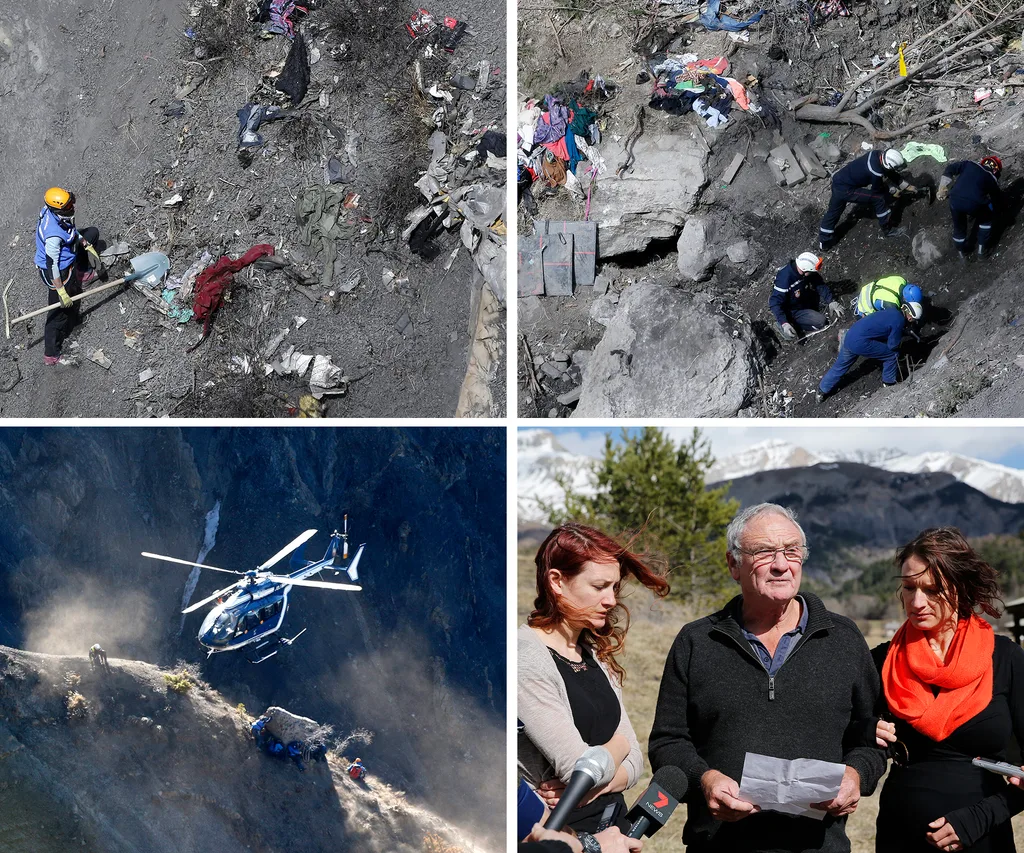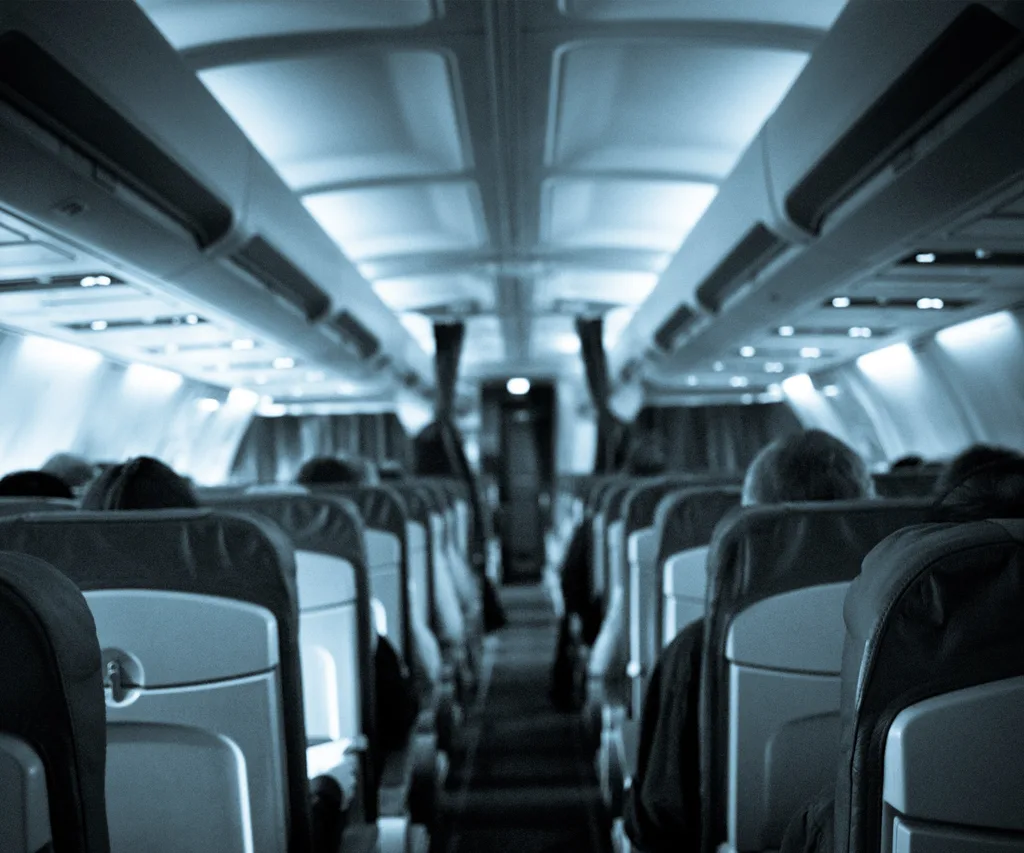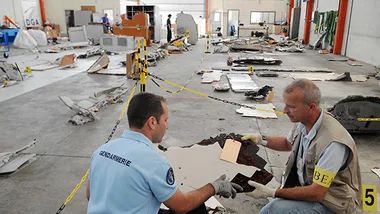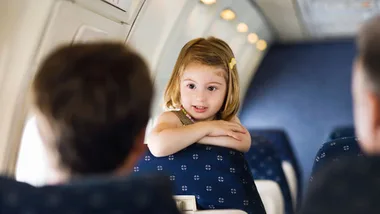Ordinary people are pretty oblivious to flight numbers but in a little over a year the utterance of MH370 and MH17 have come to signify the terror of a plane crash. The media frenzy whipped up over downed planes is enough to terrify the average flying punter but has anyone wondered what it’s like to hear about an aircraft go down then jump into the pilot seat?
A week since the catastrophic loss of Germanwings flight 9525 The Weekly asked one experienced aviator, Owen Zupp, to tell us what goes through his mind when he hears about a plane crash and if it changes the way he does his job…
Every lost airliner begins as a stalled flight number on an arrivals board. Waiting family and friends look upwards at flashing digits, initially with standard airport frustration but then confusion sets in before disbelief and dread take over as the tragedy of a plane crash becomes very real.
In just a little over a year the world has been gripped into a panic by the news of passenger liners going down claiming hundreds at a time and last week’s Germanwings Flight 9525, which killed all 150 people on board, was no different.
For most people, news of a plane crash is shocking and for a pilot, it’s no different.
These events are a complex time for aviators on a variety of levels. Like everyone else, there is a great sense of tragedy and loss. Pilots are parents and partners, sons and daughters. However, the emotion can be further tinged with a deep empathy. Among the majority of pilots there is an unspoken fellowship that finds common ground between pilots around the world. For they have their own language and shared experiences that can bridge borders and generation gaps.
For a pilot, when one of their number is lost, it resonates as a stark reminder of the nature of the occupation.
But beyond the grief there is the fallout and the inevitable question; what happened?
Honestly, for aviators, underneath the initial angst of that question is a simmering frustration because unlike the forgivably naïve public which are likely to fall prey to the media’s incessant knee-jerk sensationalism surrounding plane crashes, pilots are faced with the task of wading between the lightning fast evaluations of so-called “aviation experts” dispelling pseudo-facts and the real investigators meticulous findings that aren’t sexy enough to warrant a breaking news banner. For a pilot, discovering what really happened means undertaking a scrupulous inventory of the evidence to prevent a repeat episode.
When premature theories are espoused by “experts”, suspicion can be cast upon aircraft passengers and crews alike. And so often this takes place even before the investigators have even commenced their work.
Sometimes this misguided mud can stick and create unfounded fears for passengers that don’t magically vanish when the facts are discovered. By that time, the event has often drifted from public view and yet this is when pilots can truly learn from what took place.

Malcolm Coram, the brother Australian Carol Friday who was killed along with her son Grieg on Flight 9525, makes a statement on behalf of his family near the crash site in France.
A career in aviation means the learning never stops. One never stops studying and seeking to be better and at regular intervals, from the first day on the job until retirement, that knowledge is rigorously scrutinised and revised. It is that professional integrity and quest for continual improvement that makes the career so rewarding.
The industry overall operates under a similar ethos. Accident investigation is a transparent process and routinely leads to improved procedures and in some cases new legislation. In every aviation training course, procedure and publication, safety is always the pilot’s undisputed primary objective.
Consequently, air travel remains an extremely safe form of transport with the number of fatalities paling against those lost on our roads each year, but statistics can only offer perspective, not relieve anguish.
Pilots not only understand these numbers but experience first-hand the safety measures that are put in place by airlines and it’s this knowledge that dispels unfounded fears and allows them to confidently fly their aircraft and honour the implicit trust afforded to them by their passengers.

There is no minimising the human tragedy resulting from the loss of an aircraft, however, despite the headlines, plane crashes are not a common occurrence and aviation remains a safe form of travel through its ongoing pursuit of safety and the professional integrity of those employed in the industry.
So, if there is one thing you need to know the next time you board an aircraft, know this: pilots consider the safety of their passengers and crew as both a responsibility and a privilege.
The welfare of the people on board will always remain the priority because after all, pilots are people and have families to get home to too.
About the writer: Owen Zupp is an award-winning writer, published author and commercial pilot with nearly 30 years experience. He has flown aircraft ranging from antique biplanes to airliners and shared the journey with readers around the world through his books, blog and featured articles. Visit The Pilot’s Blog or Amazon Books to read more of Owen’s work.



